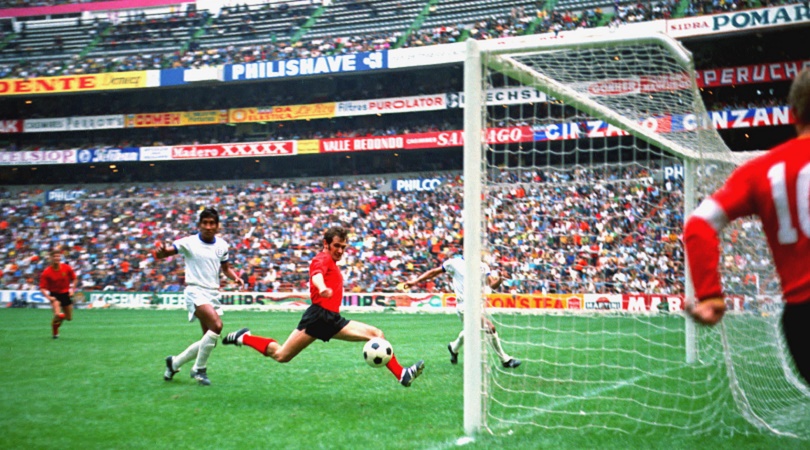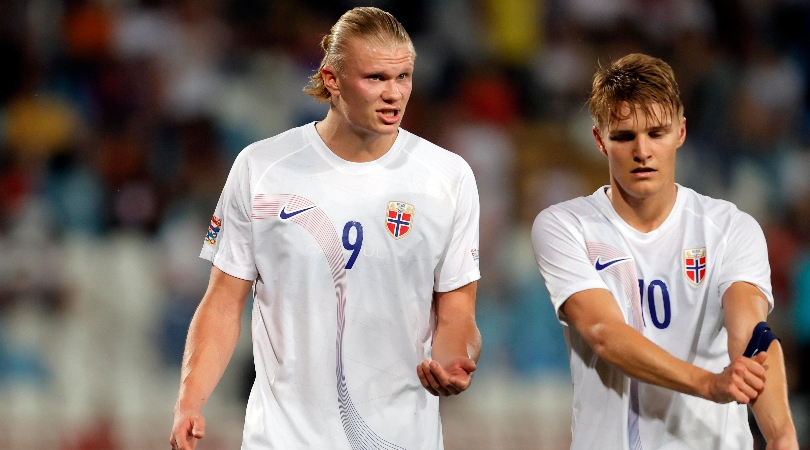Kicking and screaming: How Uruguay crashed out of Copa America Centenario
A loss to Venezuela sent the 15-time Copa champions out of this edition of the competition after just two matches. Rupert Fryer dissects where it went wrong...
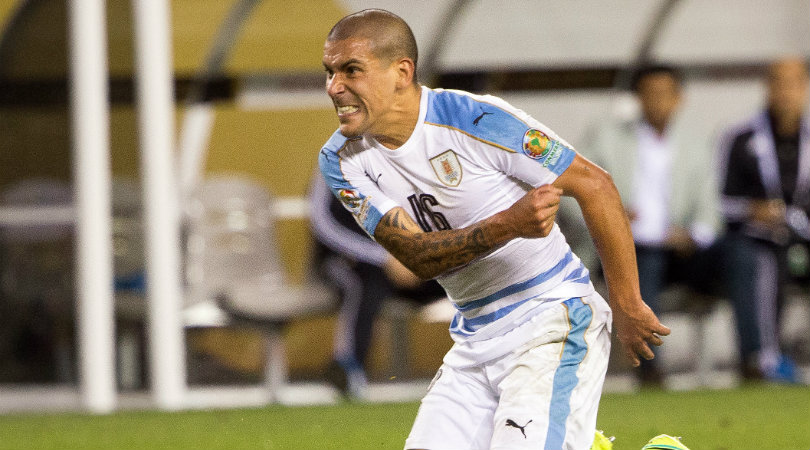
The best features, fun and footballing quizzes, straight to your inbox every week.
You are now subscribed
Your newsletter sign-up was successful
Want to add more newsletters?

Five times a week
FourFourTwo Daily
Fantastic football content straight to your inbox! From the latest transfer news, quizzes, videos, features and interviews with the biggest names in the game, plus lots more.

Once a week
...And it’s LIVE!
Sign up to our FREE live football newsletter, tracking all of the biggest games available to watch on the device of your choice. Never miss a kick-off!
Join the club
Get full access to premium articles, exclusive features and a growing list of member rewards.
The only kick Uruguay's returning star got was one of frustration, aimed at the plexiglass of the dugout. In the end, his and his country's trip to the United States amounted to little more than a few thousand air miles. And all for a competiiton their manager claimed wasn't a proper one anyway.
“Almost out,” ran Spanish newspaper El Pais, somewhat optimistically. A couple of hours later, victory for Mexico over Jamaica secured Uruguay's fate. The most storied team in football's most storied international competition had crashed out of the Copa America Centenario after just two group-stage matches.
One hundred years after hopping across the Río de la Plata to Buenos Aires to return as the first champions of South America, Uruguay have no cause for celebration on their 100th anniversary.
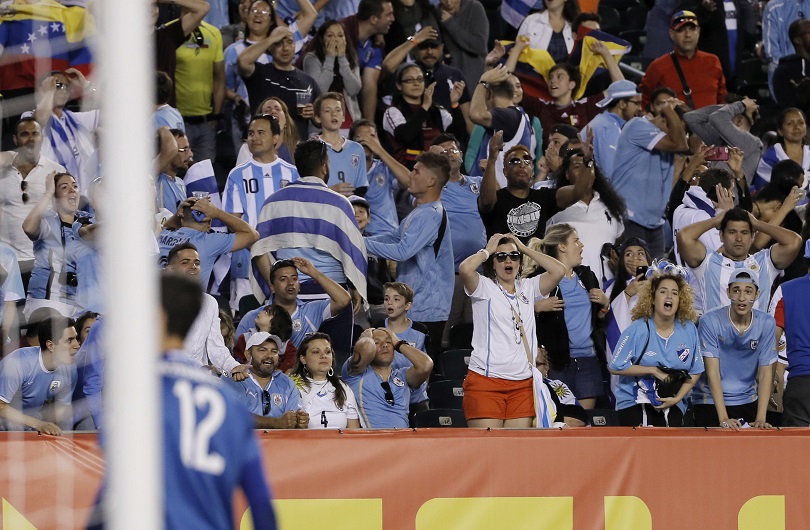
Can Cavani? Cavani can't
With Suarez again missing out this time around, though - and with Cavani scoring three times in four World Cup qualifiers - the PSG frontman was expected to belatedly step up to the plate
Their tournament was summed up in the 89th minute of the 1-0 defeat by a Venezuela side who arrived in the United States in complete disarray. Edinson Cavani, once again present in body only, somehow sent an unchallenged shot wide from 12 yards out with the goal at his mercy.
The PSG man had been waiting for the opportunity that this tournament afforded him. He'd been marginalised for years by the presence in the national team of Diego Forlan, before Luis Suarez's emergence left him playing second fiddle to another top-class striker.
Despite all those goals for Napoli, Cavani was forced into a wide role for his country, made to trudge up and down the touchline as a de facto wing-back. He became a victim of his own selflessness: mucking in, chasing, harrying, fighting. He played for others, very much in the Uruguayan tradition.
The best features, fun and footballing quizzes, straight to your inbox every week.
Forlan's retirement in 2014 was supposed to end all of that. It was supposed to set Cavani free. At last year's Copa, he didn’t even have Luis Suarez to share the limelight with. His time in the spotlight had come.
All that the Copa America in Chile brought Cavani, however, was a red card. With Suarez again missing out this time around, though - and with Cavani scoring three times in four World Cup qualifiers - the PSG frontman was expected to belatedly step up to the plate. Once again, Cavani fell short.

Cavani spurns a fine opportunity
Creative problems
Gaston Ramirez, fresh from a return to form with Middlesbrough, tried to add a spark of invention, but he once again looked a little shy of the quality needed to excel at international level
Uruguay, attempting to bounce back from a 2-1 defeat by Mexico in their opening encounter, went behind against Venezuela when a speculative, long-range effort from Alejandro Guerra caught out Fernando Muslera, who could only turn the shot onto the crossbar and into the path of Salomon Rondon, who became the first man to score in three separate Copa Americas for his country.
Venezuela’s players had come together to pen an open letter in an act of mutiny against their federation bosses in December. They arrived in the United States with just a single point from six World Cup qualifiers, with most observers expecting them to be there for the taking when they went head-to-head with Uruguay.
But coach Oscar Tabarez saw his side’s lack of creation exposed once again. Gaston Ramirez, fresh from a return to form with Middlesbrough, tried to add a spark of invention, but he once again looked a little shy of the quality needed to excel at international level.
Carlos Sanchez did his best to deliver more of his deadly set-pieces, but he couldn't quite find Diego Godin’s prolific head on this occasion. Maxi Pereira charged down the right to win long throws, Alvaro Gonzalez did his best work to get into positions to cross the ball into the box and the wonderful Egidio Arevalo Rios ate up ground and won tackles.
Sulking Suarez
Tabarez made two substitutions, with Suarez later seen shaking his head and kicking the dugout as Mathis Corujo entered the fray as Uruguay's third change
But it wasn’t enough. Tabarez and Uruguay needed something more. Unfortunately, it wasn’t available; at least, it doesn't seem to have been.
For most of the second half, the attention of many at Lincoln Financial Field was focused on the bench. Luis Suarez was not listed as part of the matchday squad on Uruguay’s official team sheet, with the Barcelona striker instead marked down as injured.
But then, to great confusion, Suarez joined in with the warm-up on the pitch before kick-off. Just after half-time, however, he remained in his seat when the substitutes began to trot down the touchline and do their stretches. Everybody - and particularly Venezuela - could relax again.
That wasn't the end of the matter, though. Soon after, Suarez put tape on his ankles and joined teammates for a run down the line. Tabarez made two substitutions, with Suarez later seen shaking his head and kicking the dugout as Mathis Corujo entered the fray as Uruguay's third change.
Suarez was furious, throwing his bib to the floor while remonstrating with the Uruguayan delegates on the bench. If he was supposed to be unavailable to participate in the game, it appeared no-one had told him.
"If he got upset, that is something I was not aware of," Tabarez said after the game. "He didn't tell me anything."
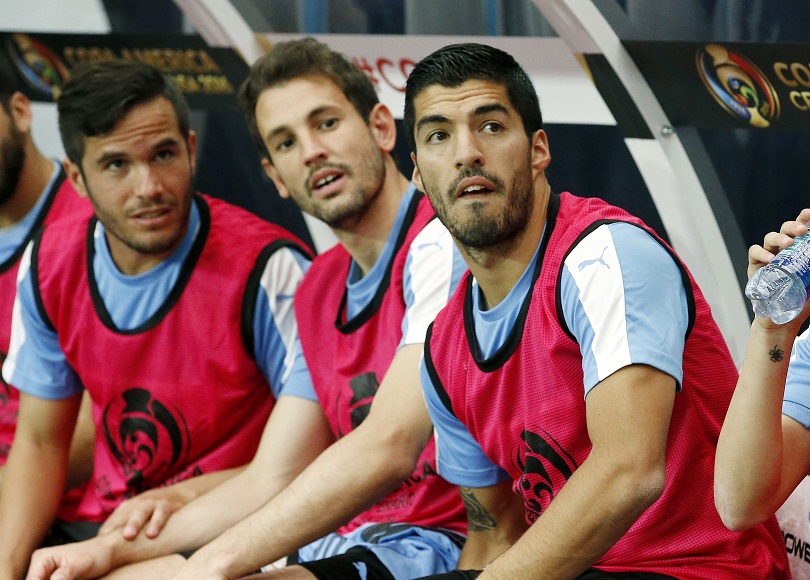
The overachievers underachieve
Los Charrúas will be quick to point out that everything went against them. The president of the Uruguayan federation suggested after his team's loss to Mexico on Sunday that the officials had favoured the CONCACAF representatives. Before that match, Chile's national anthem was mistakenly played instead of Uruguay's.
The 15-time Copa America champions were also handed an absurd itinerary in the United States, forced to fly over 4,300 miles in the group stage as Colombia and Mexico travelled for less than half that amount.
Ultimately, though, failure in this tournament falls squarely on the shoulders of players and coach. Top of the table in World Cup qualifying, Uruguay didn’t need this competition, which will surely lead to critisicm of Tabarez's decision to bring a full-strength, ageing side to a tournament that the manager himself insisted was “not a real Copa America."
But this is Uruguay: football's great overachievers. The game is everything to them. Uruguay started the World Cup and they own this competition. They play to win, to consistently overachieve. That’s their DNA; losing is not.
Uruguay may not have needed this Copa America, but the Copa America is part of who they are. As El Observer put it on Thursday night, this defeat is “a blow the soul.”
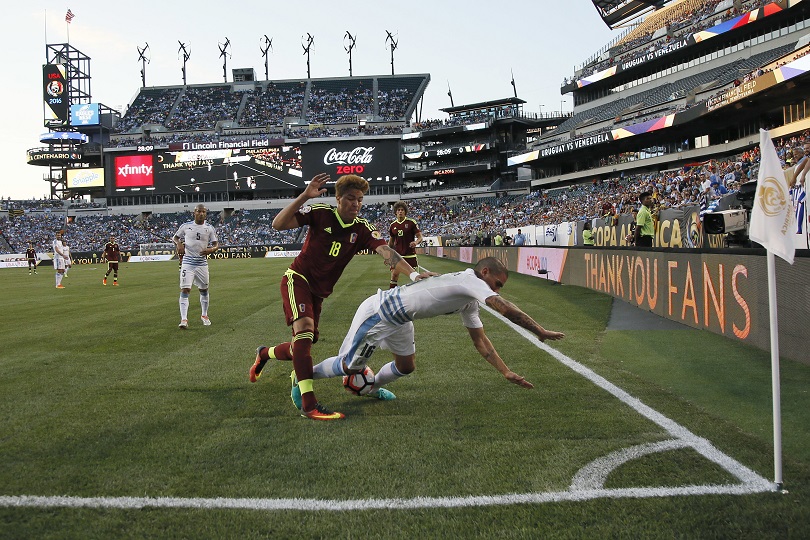
 Join The Club
Join The Club










